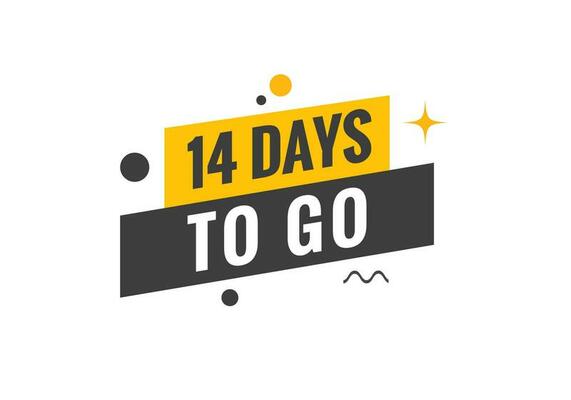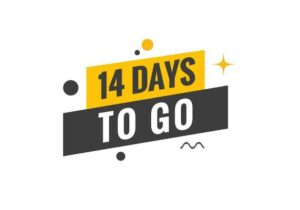The USMLE Step 1 exam is an essential part of medical education in the United States. It assesses a student’s understanding of fundamental concepts in basic sciences and their application to clinical scenarios. Administered by the United States Medical Licensing Examination (USMLE), it plays a crucial role in determining a medical student’s readiness to progress in their training and ultimately become a licensed physician.
Addressing misconceptions about the USMLE Step 1 exam is crucial for aspiring medical professionals. Misunderstandings can lead to unnecessary stress, confusion, and potentially impact performance. Therefore, it’s important for USMLE Instructors to clarify misconceptions and provide accurate information to help students prepare effectively.
In this article, we will discuss common misconceptions about the USMLE Step 1 exam. By providing background information on the purpose, content, and relevance of the exam, we aim to offer clarity and dispel any myths surrounding it. This will enable students to approach their preparation with confidence and a clear understanding of what to expect.
Misconception 1: USMLE Step 1 is Just a Knowledge-Based Exam
Some people think that the USMLE Step 1 exam is only about memorizing facts. But that’s not quite true. Yes, it tests your medical knowledge, but it’s more than just regurgitating information.
Critical thinking and applying what you know are super important. You need to understand how to use your knowledge in different situations. For example, you might get a question that describes a patient’s symptoms and asks you to diagnose them. It’s not just about knowing the disease; you have to analyze the symptoms and apply your knowledge to figure out the diagnosis.
Here are a few examples of questions that need you to think critically:
- You might be given a patient’s lab results and asked to interpret them to determine the next steps in treatment.
- You could get a scenario where you have to prioritize treatments based on the patient’s condition and available resources.
- There might be questions where you have to recognize the side effects of a drug based on its mechanism of action.
To do well on the Step 1 exam, it’s not just about memorizing facts; you also need to work on your critical thinking skills.
Here are some strategies to help you:
- Practice with clinical cases: Instead of just studying from textbooks, try to solve clinical cases. This will help you apply your knowledge to real-life situations.
- Discuss with peers: Talking about medical cases with your peers can help you see things from different perspectives and improve your analytical skills.
- Take practice exams: Doing practice exams under timed conditions will help you get used to the format of the Step 1 exam and improve your ability to think critically under pressure.
Remember, doing well on the Step 1 exam isn’t just about getting into residency programs; it’s also about being a competent and effective doctor. So, focus on developing your critical thinking skills alongside your medical knowledge.
Misconception 2: Only USMLE Step 1 Scores Decide Your Specialty
Some people think that the score they get on the USMLE exam decides which medical specialty they can choose. But that’s not entirely true. There are other important things to consider when picking a specialty.
- Your Step 1 score is essential, but it’s not the only thing that matters. Specialty choice is influenced by various factors. For instance, your clinical experience during rotations, research activities, and personal interests play significant roles.
- Clinical rotations allow you to explore different specialties and understand what they involve. They help you figure out which field resonates with you the most. Also, getting involved in research can enhance your understanding of certain specialties and make you stand out.
- Another thing to consider is your letters of recommendation. These letters reflect how well you perform in clinical settings and can influence specialty selection.
- Having Alpha Omega Alpha (AOA) status is also beneficial. It shows academic excellence and can open doors to competitive specialties.
- Preparing for interviews is crucial too. Your performance during interviews can sway program directors’ opinions and affect your chances of matching into your desired specialty.
While Step 1 scores are important, they are not the only factor in choosing a medical specialty. Clinical experience, research activities, personal interests, letters of recommendation, AOA status, and interview preparation all play crucial roles. Take time to explore different specialties, consider your strengths and interests, and seek guidance from mentors to make an informed decision.
Misconception 3: More Study Time Equals Higher Scores
Explanation of the Misconception:
- Many students believe that cramming in more study hours automatically leads to better scores on the Step 1 exam.
- They think that the longer they study, the more they’ll remember, which isn’t always true.
Quality of study over quantity of study hours:
- It’s not just about how long you study, but how effectively you use that time.
- Spending countless hours passively reading textbooks may not be as beneficial as actively engaging with the material.
Effective study strategies for maximizing retention:
- Active learning: Instead of just reading, try to actively engage with the material. This could mean teaching it to someone else, making flashcards, or summarizing key points in your own words.
- Practice retrieval: Test yourself regularly on the material you’ve learned. This could be through flashcards, practice questions, or explaining concepts out loud.
- Testing effect: Research shows that taking practice tests can improve long-term retention. Incorporate practice exams into your study schedule.
Balancing study time with self-care and relaxation:
It’s important to take breaks and prioritize self-care during your study period.
- Balanced schedule: Create a effective study schedule that allows for regular breaks and time for relaxation activities.
- Healthy habits: Make sure to eat well, exercise, and get enough sleep. Taking care of your physical and mental health can actually improve your studying effectiveness.
- Avoid burnout: Don’t overdo it. Know when to step back and take a breather to avoid burnout.
Remember, USMLE scores are important for your future career, but so is your overall well-being. Balancing study time with self-care can lead to better performance on the exam and open up interview opportunities down the road.
Misconception 4: “USMLE Step 1 Scores Are Everything”
Some people think that the score you get on the USMLE exam is the only thing that matters when applying for a medical residency. But, this isn’t true. While USMLE scores are important, they’re just one part of a bigger picture. Let’s talk about why everything isn’t all about USMLE scores and what else matters in your residency application.
Why It’s Not Just About USMLE Step 1 Scores:
- Importance of a holistic residency application: Residency programs look at your whole application to understand who you are. They want to see your abilities, personality, and how well you might fit into their program. It’s not all about one test score.
- Other components of the residency application: There are several other things that residency programs consider important:
- Clinical experience: Your hands-on experience in hospitals and clinics shows your practical skills and how you work with patients and teams.
- Research experience: Any research you’ve done can highlight your curiosity and dedication to advancing medical knowledge.
- Volunteer work: Activities outside of medicine can demonstrate your commitment to community and well-being.
- Letters of recommendation: These provide insight into your work ethic, character, and suitability for a career in medicine from people who have worked closely with you.
- Personal statement: This is your chance to tell your story, explain why you chose medicine, and what you hope to achieve in your career.
Strategies for Showcasing Strengths Beyond Step 1 Scores:
If your score isn’t as high as you hoped, don’t worry. You can still make a strong case for yourself by:
- Engaging in active learning and practice retrieval: Show that you’re continuously learning and improving by engaging in activities that enhance your knowledge and skills.
- Highlighting your achievements: Whether it’s in research, volunteering, or clinical work, make sure these are front and center in your application.
- Preparing for interviews: Once you get interview opportunities, prepare thoroughly. This is your chance to show your communication skills, personality, and dedication.
- Explaining your journey: Use your personal statement to talk about your journey in medicine, the challenges you’ve overcome, and how they’ve prepared you for a residency.
While Step 1 scores are an important part of your residency application, they’re not the only thing that matters. Programs are looking for well-rounded candidates who have more to offer than just their test scores. By focusing on the holistic nature of your application and showcasing your strengths in various areas, you can improve your chances of matching with a residency program that’s right for you.
Misconception 5: “Step 1 Scores Determine Your Future Success as a Physician”
One common misunderstanding about the USMLE exam for Step 1 is that the score you get decides how successful you’ll be as a doctor. Let’s break down why this isn’t entirely true and what really matters in your journey in medicine.
Explanation of the Misconception: Some people think that a high score on the USMLE Step 1 is the only thing that will make them a good doctor or lead to a successful career. While it’s true that scores are important for some steps along the way, they don’t set in stone your future success in the medical field.
Emphasizing Continuous Learning and Growth in Medical Practice:
- Medicine is about lifelong learning. What makes a great physician is not just what they knew during a test but how they continue to learn, adapt, and apply new knowledge throughout their career.
- Skills like active learning, practice retrieval, and the testing effect are crucial. They help doctors keep up with new information and treatments, ensuring they provide the best care for their patients.
Impact of Step 1 Scores on Residency Matching and Career Opportunities:
- High USMLE scores can indeed open doors to interview opportunities in competitive residency programs. This can influence the start of your career.
- However, residency programs also consider other factors like clinical experience, letters of recommendation, and personal statements. They look for well-rounded candidates, not just high scores.
- Once you’re in your residency, your performance, work ethic, and ability to work with a team often matter more than your Step 1 score.
Examples of Successful Physicians with Varying Step 1 Scores:
- There are many stories of doctors who had average or even below-average Step 1 scores and still went on to have rewarding, successful careers.
- Some of these physicians have made significant contributions to research, become leaders in their fields, or been beloved by their patients for their care and dedication.
- Success in medicine comes in many forms and follows many paths, not just the one marked by a high Step 1 score.
While the USMLE Step 1 exam is a crucial step in your medical career, it’s not the sole determinant of your success as a physician. Continuous learning, practical experience, and personal growth all play vital roles in shaping a successful medical career.
Misconception 6: “Step 1 Preparation Should Begin Early in Medical School”
Many people think that to do well on the USMLE Step 1 exam, you need to start studying for it as soon as you begin medical school. This idea, however, is a bit off track. Let’s break down why this is a misconception, and then talk about finding a balance. Enrolling in a USMLE Step 1 Prep course can be a smart move, aiding in structured learning and effective time management. Starting preparations at the right time and utilizing resources wisely can lead to success without unnecessary stress.
Why This is a Misconception
- Ineffective study strategies: Starting too early can lead to forgetting material because you’re not yet applying it in a clinical context. It can also lead to burnout.
- Overemphasis on Step 1: Focusing too much on Step 1 from the start can make you miss out on fully understanding your basic medical school coursework, which is also very important.
Balancing Preclinical Coursework with Step 1 Preparation
The key here is balance. The first year or two of medical school should be about mastering your basic sciences and foundational medical knowledge. This foundation is crucial not just for Step 1 but for your entire medical career.
Optimal Timing for Starting Step 1 Preparation
- Late in the second year of medical school: This is generally seen as a good time to start integrating more focused Step 1 study strategies. By then, you’ve covered a lot of the basics in your USMLE prep course, which will help make your Step 1 study more effective and less of a cram session.
Strategies for Integrating Step 1 Review Throughout Medical School
Here are some ways to smartly incorporate Step 1 prep without it taking over your life:
- Incorporate review sessions: Use dedicated review sessions to go over material you’ve already covered in classes but with a Step 1 lens. This helps reinforce your learning and applies it toward Step 1 without additional stress.
- Use question banks wisely: Start using question banks related to your current studies to apply knowledge in a Step 1 format. This is a practical application that reinforces learning and prepares you for the exam style.
- Focus on understanding, not memorization: Aim to deeply understand concepts rather than memorizing facts. This deeper understanding will help you with both your coursework and Step 1.
- Study groups: Join or form study groups focused on integrating the best USMLE Step 1 prep course into current studies. This can make studying more efficient and less tedious.
By keeping these points in mind, you can approach your USMLE Step 1 Prep course in a manner that optimizes your medical school learning journey. Avoid the pitfall of commencing too early and depending on ineffective study strategies. Instead, ensure that your preparation aligns with enhancing your understanding and retention, fostering a more productive and rewarding experience throughout your course.
Misconception 7: “Only High Scorers Can Match into Competitive Specialties”
Many people think that to get into a highly sought-after specialty for their medical residency, they need to have a very high score on the Step 1 exam. This belief isn’t entirely true and is a common misconception. Let’s explore why this is and what else matters in the residency matching process.
More Than Just Scores:
While it’s true that a good score can help open doors, it’s not the only thing that matters. There are several factors that play a significant role in whether or not you’ll match into competitive specialties:
- Clinical Experiences: Hands-on experience in a clinical setting is crucial. It shows that you can apply what you’ve learned in real-world scenarios.
- Research: Being involved in research projects, especially those published in reputable journals, can greatly enhance your application. It shows your commitment to the medical field beyond just passing exams.
- Letters of Recommendation: Strong recommendations from professionals who have worked closely with you can provide a huge boost. They offer a personal insight into your abilities, character, and dedication.
Strengthening Your Residency Application:
Knowing that high scores aren’t everything, here are strategies to enhance your application:
- Engage in Meaningful Clinical Rotations: Seek out rotations that align with your interests and where you can make a real impact. This not only enriches your experience but also could lead to strong letters of recommendation.
- Pursue Research Opportunities: Look for chances to get involved in research, even in small roles, to start building your portfolio. Any contribution to research can be beneficial.
- Network: Connect with professionals in your desired field. This can lead to mentorship opportunities and potentially influential letters of recommendation.
- Show Your Unique Qualities: Beyond just medical skills, programs look for individuals who will contribute to their community in unique ways. Highlight your leadership, volunteer experiences, and any other aspects that make you stand out.
The USMLE score of Step 1 is important, it’s not the sole determining factor for matching into competitive specialties. Successful candidates often have a blend of strong clinical experiences, research involvement, and impactful letters of recommendation. Focusing on these areas can significantly enhance your residency application, making you a well-rounded candidate for any program.
Real-Life Experiences and Testimonials:
When studying for the exam, many medical students come across a wide range of opinions and myths. By sharing their real-life experiences and testimonials, students who have successfully passed the exam help debunk common misconceptions. Their stories highlight the importance of understanding, critical thinking, and effective study strategies.
- Myth: “It’s all about memorization.”
Real-Life Experience: Jessica, a recent test taker, shared, “I thought cramming facts was the key, but applying concepts mattered more. Real patient scenarios required me to think, not just recall.”
- Misconception: “You need to study 24/7.”
Testimonial: Mark revealed, “Quality over quantity worked for me. It was more about focused, effective study sessions than long, draining hours.”
- Myth: “Only the latest resources matter.”
Feedback: Amina mentioned, “Using a mix of old and new study materials helped me. It’s how you use the resources, understanding the core concepts, that truly impacts your score.”
- Misconception: “Practice questions aren’t as crucial.”
Real-Life Experience: Carlos argued, “Regular practice with questions was a game-changer for me. It wasn’t just about reading; testing my knowledge helped me improve.”
- Myth: “The exam tests your knowledge depth in isolated topics.”
Testimonial: Sarah noted, “Integrating knowledge across disciplines was key. The exam tested how different concepts connect in clinical scenarios.”
These testimonials underline a few important elements for success in the USMLE Step 1 exam:
- Understanding Over Memorization: Grasping concepts deeply rather than shallow memorization.
- Quality Study Time: Effective, focused study sessions trump lengthy, unfocused ones.
- Resource Utilization: How you use study materials matters more than chasing the newest ones.
- Practice Makes Perfect: Regularly testing yourself with practice questions to identify weaknesses and improve.
- Integrated Knowledge: The ability to connect concepts across different subjects is crucial.
By listening to the feedback and real-life experiences of those who’ve navigated the USMLE exam successfully, students can gain insights into the effectiveness of various study strategies and the true impact of understanding and critical thinking on exam success.
Expert Insights and Advice
USMLE experts share valuable insights and advice to clear up misconceptions surrounding the USMLE exam for Step 1. These experts offer their perspectives on common myths about Step 1 preparation, providing clarity on study strategies, resource selection, and exam readiness. By tapping into their wealth of experience and knowledge, learners can gain a better understanding of what truly matters when preparing for this critical exam.
USMLE expert advice is instrumental in guiding students through the complexities of Step 1 preparation. Their recommendations cover various aspects, including effective study strategies tailored to individual learning styles, selecting the right resources to maximize learning, and ensuring readiness for exam day. By heeding their advice, test-takers can dispel misconceptions and adopt proven approaches to optimize their performance on the USMLE exam.
Community Engagement and Support
Community engagement and support play crucial roles in helping medical students navigate the challenges of the USMLE Step 1 exam. Platforms like Reddit’s r/Step1 serve as valuable online forums where students can come together to share their experiences, seek advice, and gain insights into effective preparation strategies. These platforms offer a sense of community and camaraderie, allowing students to connect with peers who are going through similar experiences. By actively participating in these forums, students can access a wealth of information, ranging from study tips to resources recommendations, thus enhancing their preparation for the exam.
Moreover, fostering collaboration among medical students through local organizations and regular events can further contribute to a supportive exam preparation environment. By organizing study groups, workshops, and seminars, students can debunk myths surrounding the Step 1 exam, share valuable insights, and provide emotional support to one another. This collaborative approach not only facilitates knowledge sharing but also creates a sense of solidarity among students, making the exam preparation journey less daunting and more manageable. Through community engagement and support initiatives, medical students can navigate the complexities of the USMLE exam with confidence and resilience.

















